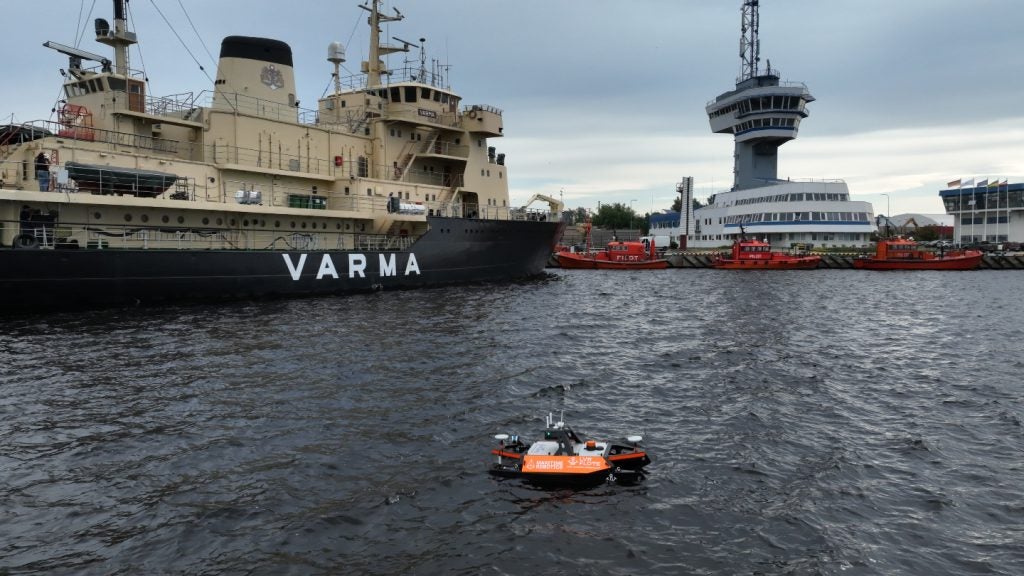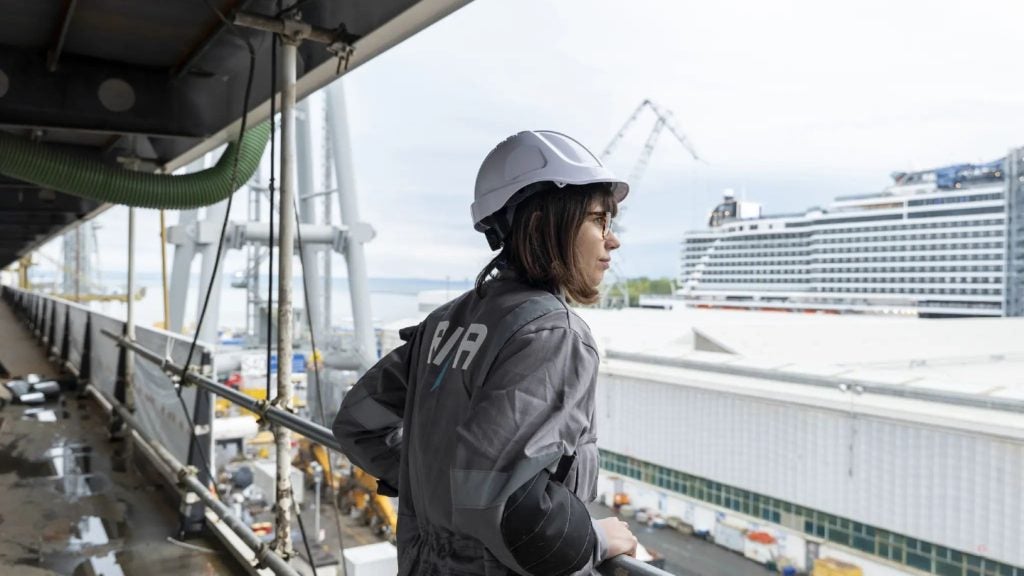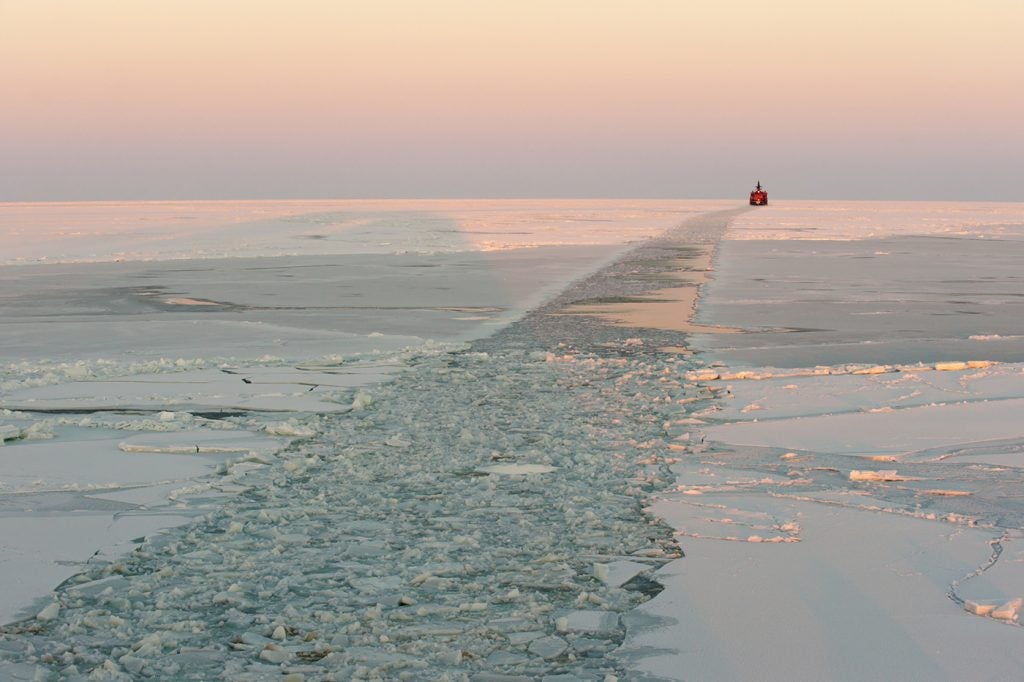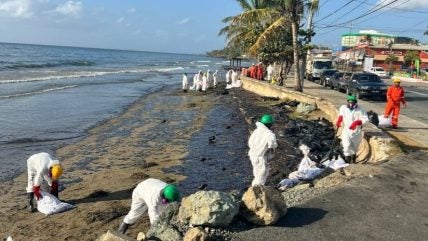
Trinidad and Tobago is poised to declare a national emergency as authorities and volunteers struggle to clean up a massive oil spill after a tanker capsized just off Tobago’s southern coast.
Initial estimations said roughly 15km of Tobago’s southwestern coastline had been contaminated, but updated figures from the Tobago Emergency Management Agency (TEMA) now show the spill’s affected area could span up to 88km.
The government has already designated the spill as a Level 2 disaster. It is reportedly debating escalating this to Level 3 – a national emergency only declared when local resources are overwhelmed and international assistance is required.
“An unknown vessel has... drifted upside down into Tobago. That vessel, we don’t know who it belongs to. We have no idea where it came from and we also don’t know all that it contains,” Prime Minister Keith Rowley said at a press conference reported by the Trinidad & Tobago Newsday.
The tanker has only been identified as the Gulfstream, as any onboard crew members did not make distress calls and remain unaccounted for.
Images published online appear to show the capsized tanker just meters from the island's coastline, with a gaping hole in its hull.
How well do you really know your competitors?
Access the most comprehensive Company Profiles on the market, powered by GlobalData. Save hours of research. Gain competitive edge.

Thank you!
Your download email will arrive shortly
Not ready to buy yet? Download a free sample
We are confident about the unique quality of our Company Profiles. However, we want you to make the most beneficial decision for your business, so we offer a free sample that you can download by submitting the below form
By GlobalDataHow will the spill affect Tobago amid carnival celebrations?
The Gulfstream’s oil spill has inflicted damage on “eco-sensitive areas in the island home to Tobago’s main economic sectors, tourism and fisheries, which are also vital for local food security”, according to Paul Hasselbrinck, upstream analyst at GlobalData.
This disruption to the local economy and supply chains coincides with Trinidad and Tobago’s carnival celebrations, a significant source of tourism income.
Tobago’s southwestern beaches – and their hotels and resorts – are the lifeline of the local economy during carnival season.
Cleanup and restoration costs have amounted to nearly TTD1m ($147,500), while the initial estimations of the affected area’s size have already more than tripled.
Alongside government agencies, more than 1,000 volunteers are working to contain the spill with floating containment booms, according to TEMA.
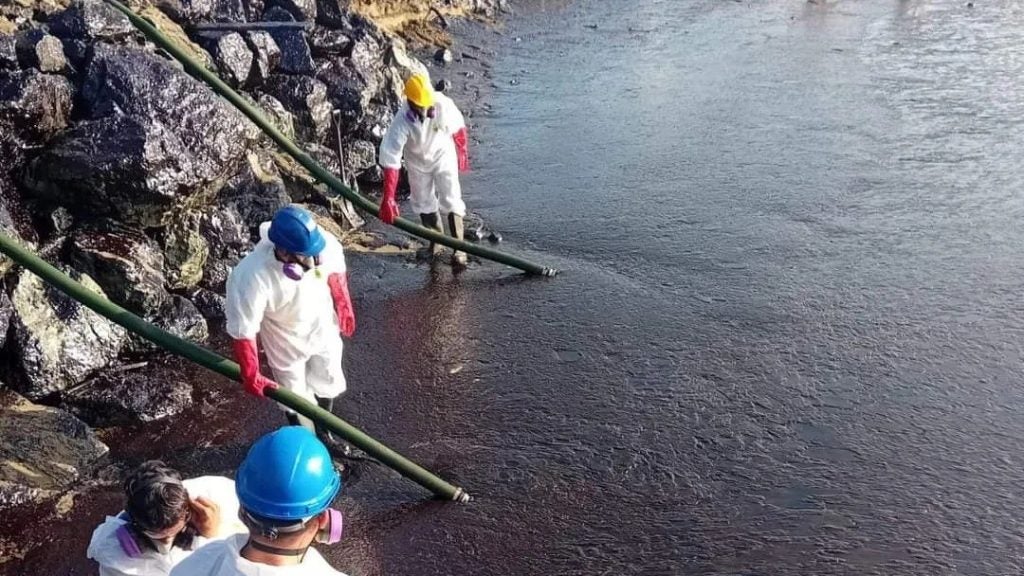
The likelihood of Trinidad and Tobago calling a national emergency depends on whether these workers can prevent delays to supply chains across the Caribbean region.
“Given the small size of the ship [reportedly only 330ft], the potential impacts on oil and other supply chains are deemed to be low and localised, with a minimal knock-on effect on the wider Caribbean and Central American supply chain and market,” Hasselbrinck tells Ship Technology. “However, disruption to local markets may be clearer once the ship and oil have been fully identified.”
What environmental damage has been inflicted?
Along Tobago’s southwestern coastline lies some of the Caribbean’s most pristine and ecologically rich beaches.
Local marine wildlife is also under threat, as Hasselbrinck expects the spill will “harm fish and other aquatic species, disrupting the entire ecosystem”.
Enquiries into the socio-environmental credentials of fossil fuel companies’ transport routes have intensified drastically in recent years.
Emissions aside, the phenomena of shipbreaking and ship abandonments – which increased by 11% in 2023 – have prompted environmentalists, business figures and analysts to question businesses’ oil shipping routes.
“Amid increased scrutiny of environmental claims and commitments by oil and gas companies, this incident could be very damaging, financially and reputationally, to any major companies involved,” says Christopher Papadopoulos, thematic analyst at GlobalData.
Oil tanker spills have declined in every decade since the 1970s, dropping to 63 medium and large tanker spills in the 2010s.
Regardless, preserving the biodiversity of one of Trinidad and Tobago’s most abundant areas has led to calls for tighter regulation on oil shipping.
“The focus of the authorities right now should lie in mitigation of environmental impact, and maintaining locals, tourists, and fishers away from the affected area,” Hasselbrinck concluded.
“Oil samples have been sent for analysis to identify the liquid and help the search for the responsible party, which remains a mystery. The event has prompted calls for stricter regulation to ensure accountability and prevent such catastrophes in future.”



